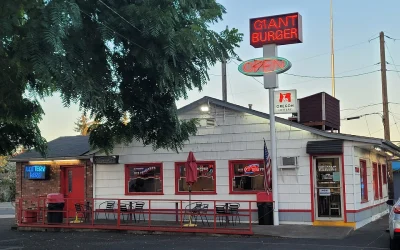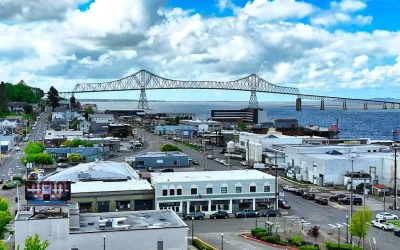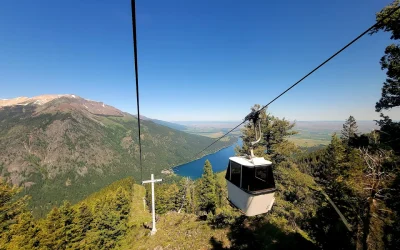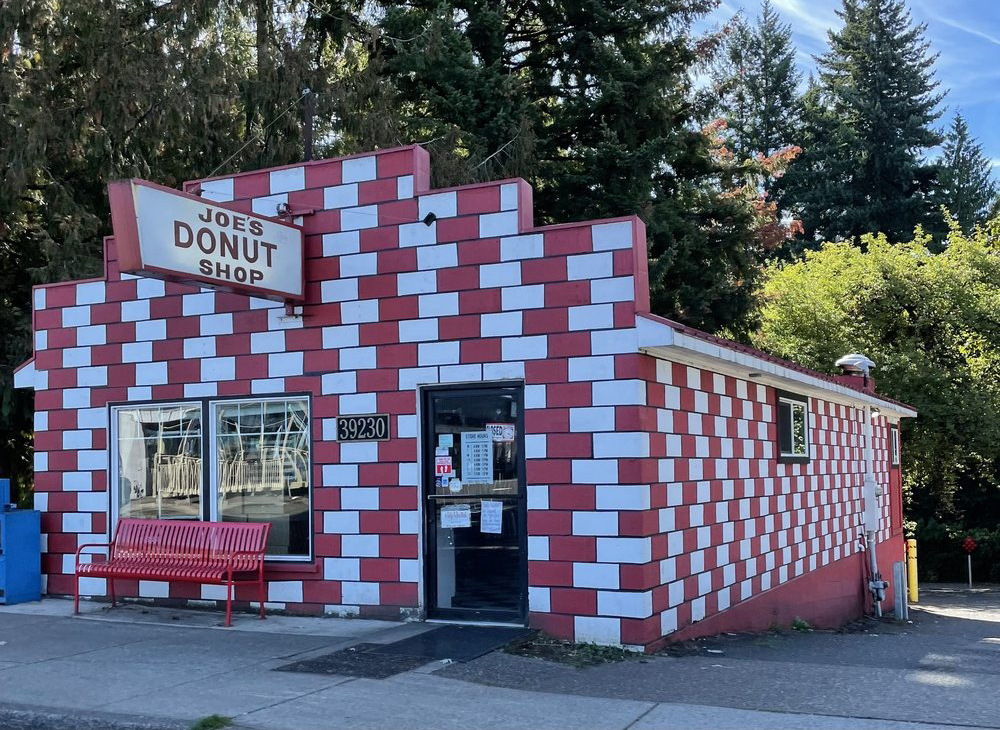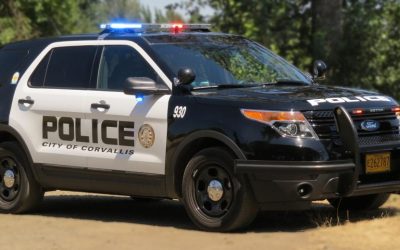At first glance, the Facebook group "Oregon History (State)" looks harmless; a place where locals gather to share old photos of logging camps, coastal towns, and vintage streetcars. With tens of thousands of members, it feels like the kind of community where Oregonians really get to connect over their shared past.
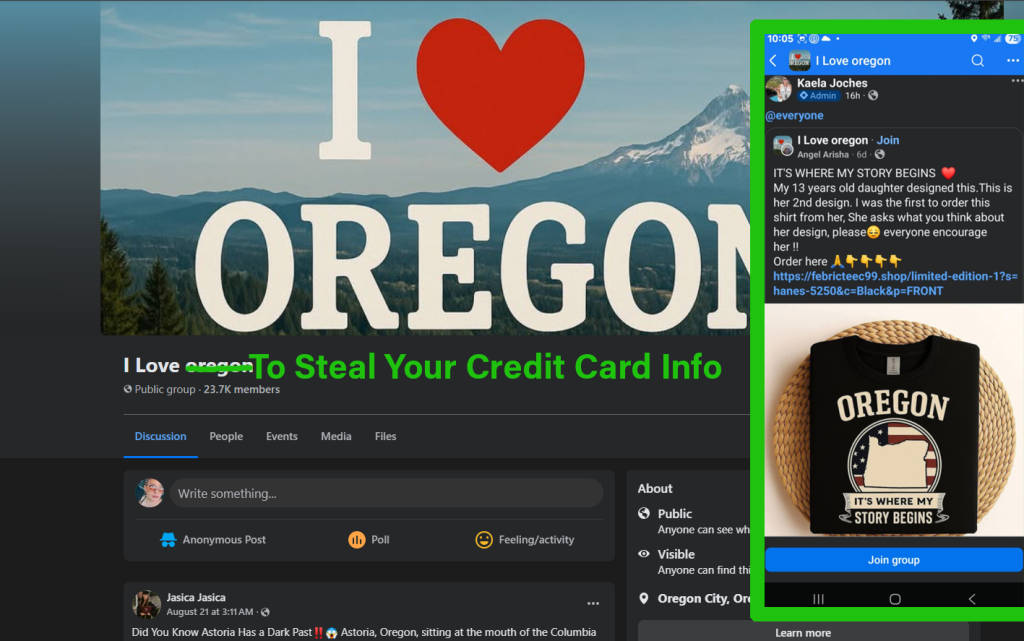
These groups (like the above "I Love Oregon") look like a quaint digital scrapbook. Scroll for two minutes, though, and you’ll start to wonder if the only “history” here is the long tradition of internet scams. Scratch the surface and you’ll find something far more troubling: a phishing operation hiding in plain sight.
Stolen Content is Your First Clue
If you're a member of any of the truly awesome Oregon History groups available to peruse on Facebook, you'll know and immediately recognize frequent high-effort posters. The ones who know how to really dig into their research and post beautiful, quality content. Photographers who may travel miles to capture the Milky Way from the perfect vantage point at Crater Lake. Authors who leave you emotional with a perfectly crafted historical account of Oregon's indomitable ancestors.
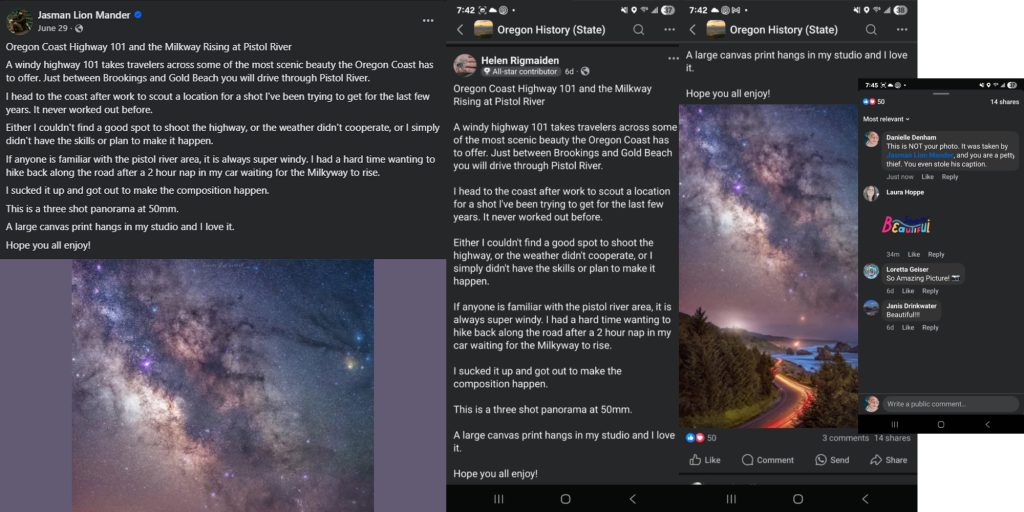
These phishing groups steal that content, give no credit to the original poster, and spin that high-effort work into more fuel for their scams. It's an outright slap in the face to the good folks doing all the hard work.
Do yourself and others a favor by unfollowing and reporting these groups.
Do you love Oregon?
Sign up for monthly emails full of local travel inspiration and fun trip ideas. In each newsletter we'll share upcoming events, new things to do, hot dining spots and great travel ideas.
The Phishing T-Shirt Trap
Doom-scroll through these groups (they truly are a dime-a-dozen) and you’ll see the same scam over and over. A profile (usually faceless, often brand-new, or, more disturbingly, run by the group "admin" themselves) posts a historic image, maybe an old postcard of Crater Lake or a black-and-white photo of Portland’s Burnside Bridge. Almost instantly, the same account or its accomplices drop a link: “Buy this photo on a t-shirt here!”
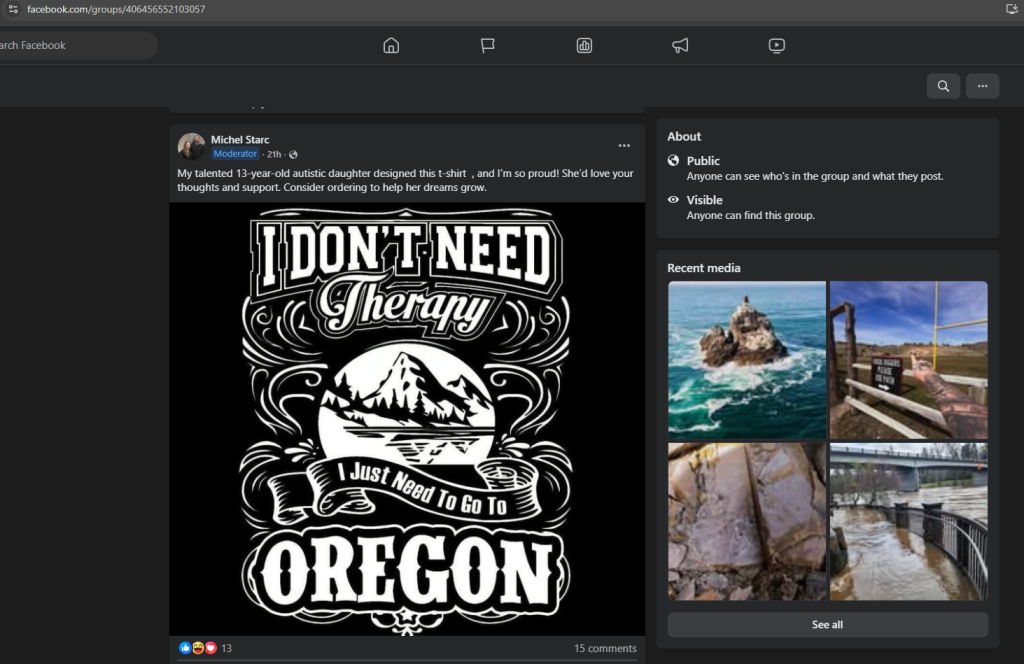
Better yet, the poster preys upon your heartstrings. "My 13-year-old autistic daughter with MS designed this t-shirt from her wheelchair! Give her some love!"
Those links are not small Oregon businesses. They’re mass-produced phishing sites, designed to steal credit card numbers and personal information. Victims think they’re buying a $20 hoodie. What they’re really doing is handing over their data to a scammer.
Who Runs These Groups?
The “Oregon History (State)”, "I Love Oregon", "Oregon History" groups (and 100 others just like them) are not moderated by Oregon historians, librarians, or even long-time locals. Many of the admins and posters appear to be fake accounts, some registered outside the U.S. Their timelines are empty, their names generic, their profile photos suspiciously stock-image-like.
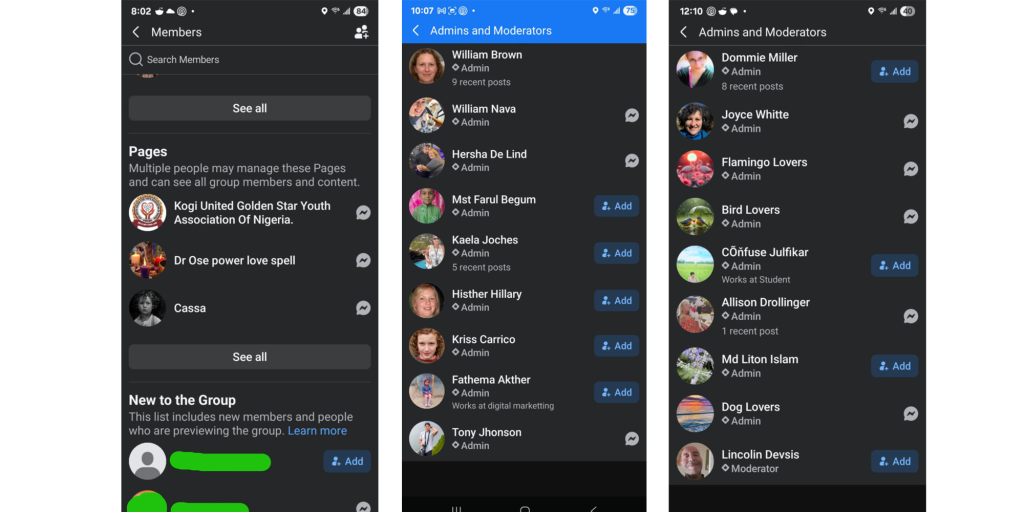
Worse, much of the content inside is lifted wholesale from legitimate groups such as Forgotten Oregon and Oregon Historical Society archives with no credit given. It’s theft repackaged for engagement.
How the Scam Works
- Content Theft –- Real Oregon history groups post valuable archival photos. Bots scrape and repost them.
- Engagement Bait –- Posts ask empty questions like, “What’s your favorite Oregon town?” purely to drive interaction.
- Phishing Links –- Scam links disguised as “merch” get sprinkled into the comments. Click them, and you’re on a fake store funneling data to scammers.
- Fake Validation –- Other bots “like” and comment on these posts to make them look popular and trustworthy.
This isn’t just one bad post. It’s an entire playbook of deceit.
Why It’s Dangerous
- Identity Theft: Entering your info on these sites can compromise your bank account or email.
- Misinformation: Stolen posts stripped of context can spread false or misleading history.
- Erosion of Trust: Legitimate Oregon communities are drowned out by bot farms that care only about clicks and cash.
How to Spot a Fake Group
- Check the Admins: If they have no Oregon ties, no friends in the community, and no history of real posts, that’s a red flag.
- Constant Use of the "@everyone" Tag: If group admins and moderators are using this tag to reach every group member with a item to buy, a "contest entry", or something equally sus, it's a scam (I'm looking at you, "Free RV Giveaway"...stop falling for that).
- Look for Spammy Links: “Buy this on a shirt” or “Click here for your mug” accompanied by a shady looking link is almost always a scam.
- Watch for Recycled Content: If you’ve seen the same image posted in multiple groups, chances are it was stolen.
- Engagement Bait Everywhere: Endless polls, low-effort prompts, or generic memes are the hallmark of bot groups.
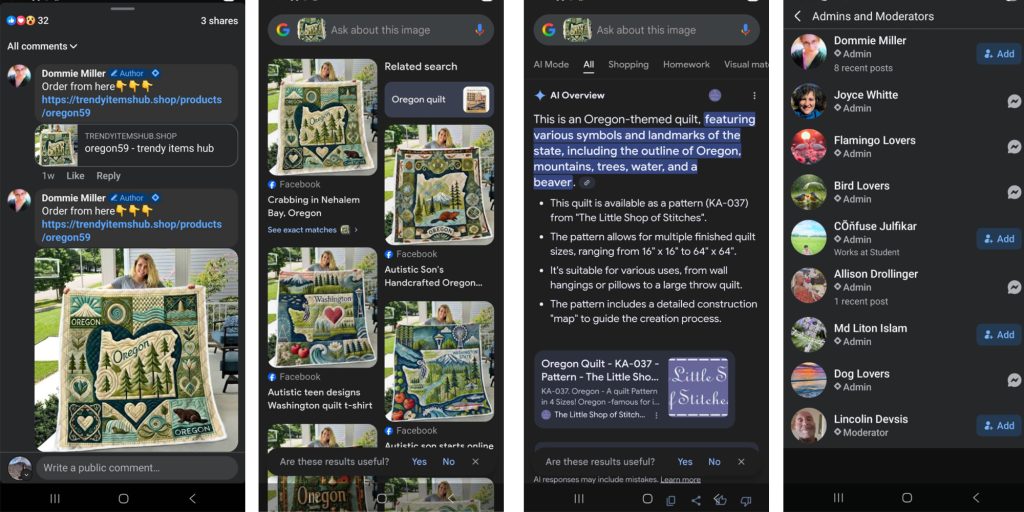
Protect Yourself
- Never EVER click suspicious merch links. Stick to trusted Oregon shops, artists, and Etsy sellers you can verify.
- Report, report, REPORT suspicious groups to Facebook. It may feel small, but enough reports help to expose these scams.
- Support real history communities. Pages run by museums, local libraries, and verified community groups are worth your scrolls and effort.
Final Word
Oregon history is rich, fascinating, and worth celebrating. But don’t let scammers turn nostalgia into a trap. If a group looks too generic, if the admins seem fake, and if the posts are riddled with shady merch links, trust your gut.
At That Oregon Life, we love celebrating Oregon’s history. But we also want to keep our readers safe. If you’re joining groups to reminisce about the past or see beautiful photos of the state we call home, make sure the group itself isn’t a scam in disguise. Nostalgia should never come with a phishing link attached.


